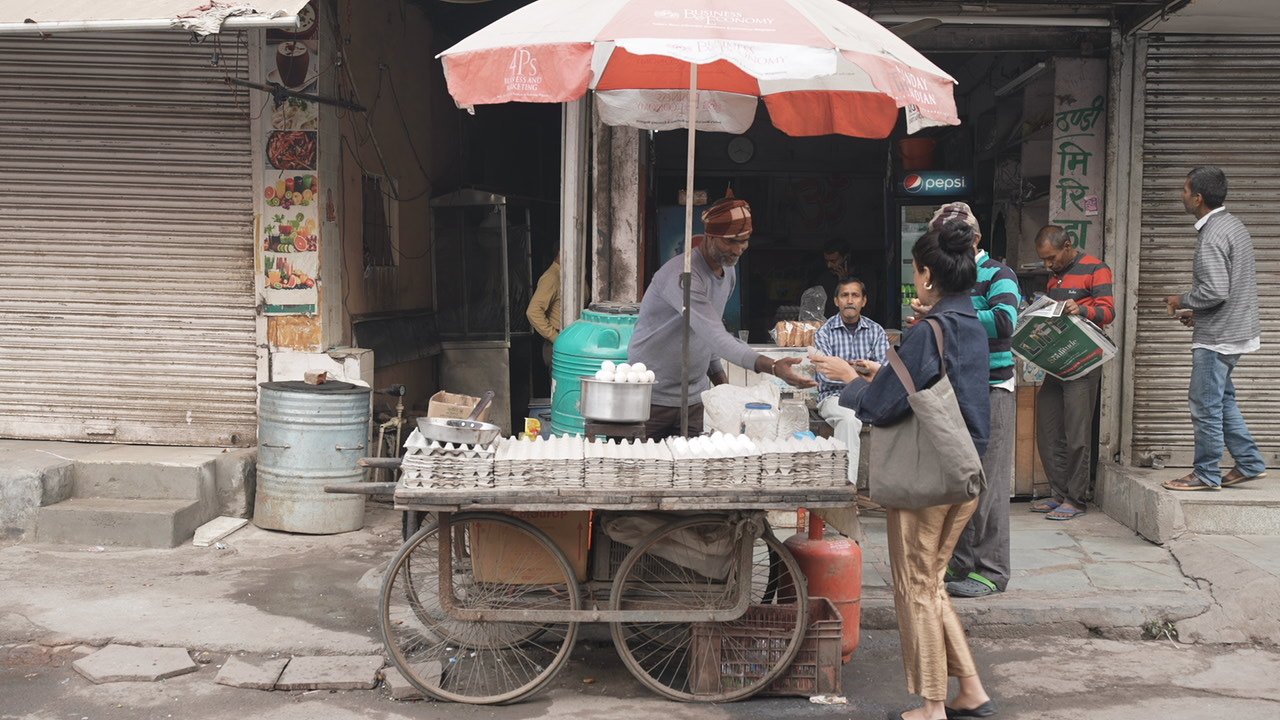Episode 6 - Bad Table Manners
Mid-Day Meal
About halfway through Season 1, we break to discuss the mid-day meal: India's most successful welfare scheme that is now a lens into understanding Indian politics. The Mid-Day Meal feeds millions of school-going Indian children daily and has widely been considered one of India’s most successful welfare programs. Two economists who have been instrumental in its success, Jean Drèze and Reetika Khera, will uncover the history of this program, but also remind us that because what's on plates is always political, the future of welfare, too, is uncertain. A focused discussion on the contentious introduction of the egg in the meal will, in particular, reveal how sometimes, unfortunately, political interests can trump the basic human right to food and nutrition.
In this episode of Bad Table Manners, Meher chats with:
Jean Drèze is a Belgian-born Indian economist and activist
Reetika Khera teaches development economics, public economics, and social policy as an associate professor at the Indian Institute of Technology Delhi
Episode highlights:
An “Extraordinary Program”
Jean praises the Mid-Day Meal program, which feeds around 120 million school children every day during the school year everywhere. “This is one program that you will find in every village, no matter how remote,” he says. “It’s really one of the best things that has happened in social policy in India in the past few years.”
The program provides many benefits: ensuring that children are not hungry in the classroom, reducing exclusion from the school system, increasing attendance, improving nutrition among children, producing better learning achievements, and providing direct employment for women in India.
The program also helps break down caste barriers, Meher notes, in that it creates a new opportunity for children across castes to eat together.
Criticisms of the Mid-Day Meal
The program encountered some pushback from parents of upper castes who did not want their children eating with those in lower castes, Jean explains.
Reetika adds that, in the initial years of the program in the 1990s, the scheme did not function homogeneously across states, which led to varying results. Many states, for example, enacted a “dry ration scheme,” in which rather than feeding children in schools they sent food home with them.
About 20 years ago, the Supreme Court enacted a national mandate that required the program to provide cooked meals, rather than dry rations. This sparked a fresh round of controversy over the lack of quality of the meals.
A Brief Timeline
Reetika briefly outlines the evolution of the program:
1990s: moving from dry rations to cooked food
2000s: ensuring that cooked food was provided regularly, everywhere, no matter what
2010s: improving nutritional content of the cooked meals
The Strong Case for Eggs
Menus vary from state to state, depending on region and budget, but guidelines for the program specify nutritional benchmarks for the Mid-Day Meal. For example, Jean relays, at the primary school level, meals must contain 450 calories and supply 12 grams of protein per child per day.
Eggs were incorporated into the Mid-Day Meal scheme to help fulfill these nutritional benchmarks. Despite evidence from activists and nutritionists about the benefits of eggs for children, many upper caste groups have strongly resisted it on the basis of vegetarianism.
Eggs are an ideal food for the Mid-Day Meal program, Jean explains. They are nutritious for children, but they are also affordable in terms of the amount of nutrients per rupee. They also have a long shelf life, and children love them.
The Politics of the Egg
The debate over vegetarianism and the egg’s place in it in Indian society is not new, Meher notes, citing Mahatma Gandhi, who said, “He who can take milk should have no objection to taking sterile eggs.” Still, this logic and the dietary benefits of eggs are largely set aside in order to appease the Hindu lobby.
Jean is critical of groups who oppose eggs. “It’s really unfortunate,” he says, “that these upper caste vegetarians are not resisting eggs for themselves. They are trying to impose their own norms on other people.”
Mid-Day Meal Today
Despite evidence of the benefits of the program, the budget has been slashed severely over the course of the years, and it’s currently at the lowest it’s ever been, about 30 percent lower than it was in 2014.
The current government goal for the program is to corporatize and brand it. It has been renamed PM Poshan, and while there has been some discussion of extending it to pre-primary school children, it is still the same program as Mid-Day Meal but with no extra financial assistance, Jean notes.
Rebranding has nothing to do with making improvements to the program. This rebranding is more political than beneficial for children, Meher states. “The threats to basic food rights are real,” she says, “as they’re linked not only nutrition, but a larger cosmology of power structures.”
Guests
-

Jean Drèze
The writer, a former member of the UPA’s National Advisory Council, is visiting professor at the department of economics, Ranchi University
-

Reetika Khera
Reetika teaches development economics, public economics, and social policy as an associate professor at the Indian Institute of Technology Delhi.

